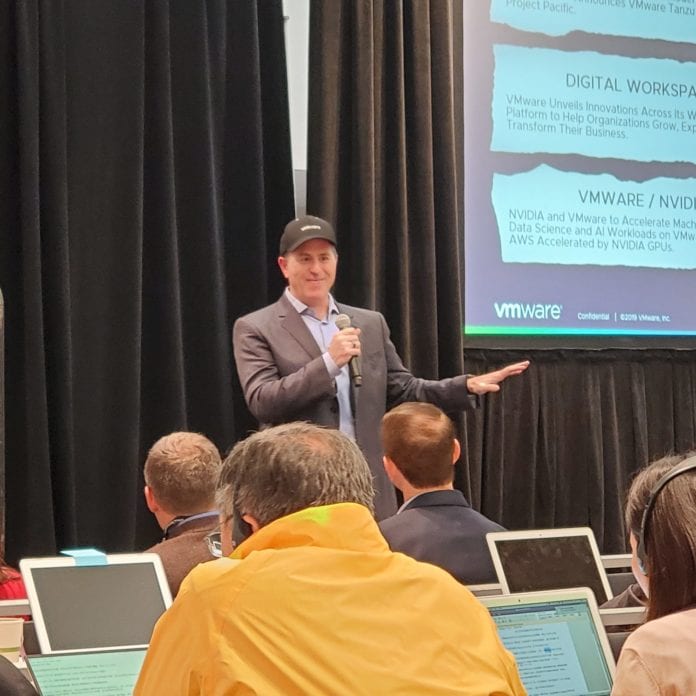Will escalating dispute bifurcate global trade?
SAN FRANCISCO–President Trump, to the detriment of some U.S. businesses, continues to escalate tariffs on Chinese goods and even went so far as to order American companies to exit the Chinese market. Given the global nature of supply chains and China’s dominance in electronics manufacturing, the trade war is particularly problematic for technology companies.
To give an idea of the impact, China-based Huawei has scrapped plans to invest in U.S. R&D and cut hundreds of employees from its Futurewei subsidiary. Similarly, Qualcomm and Intel and felt the impacts and even lobbied federal officials to curtail disruptions in component deliveries to Huawei.
In response to a question from a Chinese journalist, Dell Technologies CEO Michael Dell and VMware CEO Pat Gelsinger briefly discussed adjustments they’ve had to make and what the bigger picture is. The CEOs were fielding questions during a media Q&A at VMworld.
“The big context that I would suggest we think about,” Gelsinger said, is “we don’t think these disputes and issues will get resolved quickly. Against that long time period, we see the world as increasingly becoming two trading blocks,” in the East and the West.
He continued: “We believe every company needs to determine how it lives in a dual trading block, building up its supply chains, engagements, customers and the trading partners it works with assuming that’s a long-term trading block world. We’re committed to China and we’re adjusting how we work with that portion. We believe every company is in the process of figuring out how to live in this sort of dual supply chain, dual trading block world.”
Following Gelsinger’s on-stage comments, Michael Dell hopped up from a seat in the front row, grabbed a mic and shared his thoughts.
“We have had to make some adjustments to our business to deal with the tariffs and will continue to make those adjustments. Our first priority is to ensure continuity of supply for our customers. Fortunately we’ve been able to do that. We have a very substantial business in China and outside of China that certainly relies on our global supply chain. We’ll speak with the government officials to encourage them to continue to work together to find a successful resolution to the current tensions, which we certainly don’t find to be productive to our business.”

